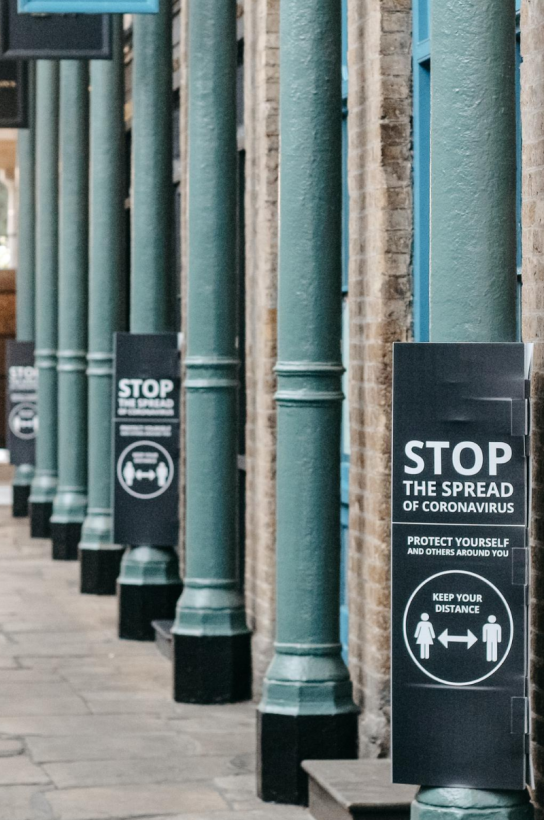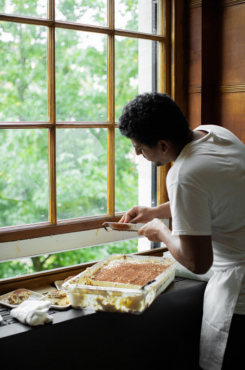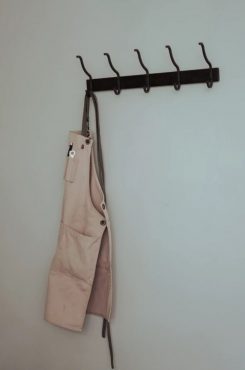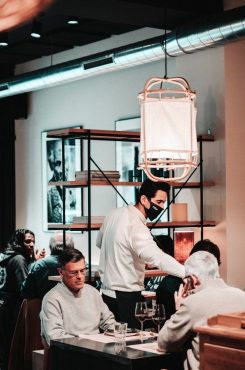In this weeks column, CODE’s Adam Hyman discusses how our relationship with space has changed over recent months and the implications this has on the hospitality industry.
I’ve had a funny relationship with the concept of space over the past four months. I live in a decent sized apartment. It’s not of Tokyo living proportions but at the same time it’s not like one of the sprawling set ups in Manhattan that you see on Architectural Digest. Pre-lockdown I was very happy with the place I call home. In the summer it’s airy and bright, with balconies at either end of the apartment, and in the winter its cosy and warm.
Like a lot of people who live in central London, I don’t spend a lot of time at home, especially during the working week. My routine used to see me out the door by 06.45 to get an exercise class in and wouldn’t often return until gone 22.00. In a very short space of time, our lives were turned upside down. We were confined to the same four walls day-in, day-out during lockdown. My home suddenly felt claustrophobic. My mid-century furniture unpractical and uncomfortable for endless hours of box sets. The realisation that if I had my washing machine on I couldn’t watch TV in peace.
Since we’ve emerged from lockdown, our relationship with space has changed. We read the column inches about everyone moving out of the city to find more space and the much sought after garden or terrace. We spend our days now being prompted by endless signs to be physically distant (please let’s not use the words socially distant) in shops, restaurants, galleries and on public transport. Even our roads are being rejigged for this (which I still don’t quite understand).
This whole new attitude towards space, and personal space, has of course impacted our dining rooms up and down the country. Do you recall ever walking past a restaurant or bar, looking in and seeing a dining room with only a smattering of people in (usually couples not talking to each other) and deciding to head somewhere else. An assumption that it’s lack of customers meant it was a crappy restaurant. We’ve all done it – especially when abroad.
There’s something about an empty restaurant that implies it’s not good. We want a buzz, a bar bustling with people jostling for their pre-dinner negroni while waiting for their table. The maitre d’ holding court at his podium dealing with hungry customers – the conductor keeping his symphony in check. Orchestrating a room but where do you hold customers now if they’re early or the table isn’t ready. There is no bar. It’s back out onto the street.
But these places are not what they used to be. I walked past one well-known restaurant that is predominantly counter-based dining and they’d moved all their seating outside. Is this what people want? I personally don’t. When the sun shines it’s great but I’m writing this looking out of a window that has had rain running down it all day.
Space it as at a premium in a city, especially somewhere like London. You want a lot of it, you have to pay crazy sums for it. Some of my favourite shops in London can currently only let 2 people in at a time. Some of my favourite restaurants have not been able to open due to the fact they’re the size of a postage stamp. But that’s why we liked them. They were intimate, noisy, sometimes sweaty and maybe not the most comfortable. But being perched on a stool, cheek to jowl with strangers was part of the charm of it all. Will we ever experience this again? Will a chef ever be able to share a shot of something alcoholic across the counter with you, will you be able to dance the night away surrounded by other people, will bars ever return to serving olives and nuts with your cocktail?
Cities can be very lonely places. We often venture to the cafes, bars, restaurants and hotels in a metropolis for some company, a chance to socialise, people watch and be anything but physically and social distant from people. Humans are social animals. Until a vaccine is found perhaps we’ll never return to the old normal but one things is for sure, I’m never going to complain about tables being too close together in a restaurant ever again.



